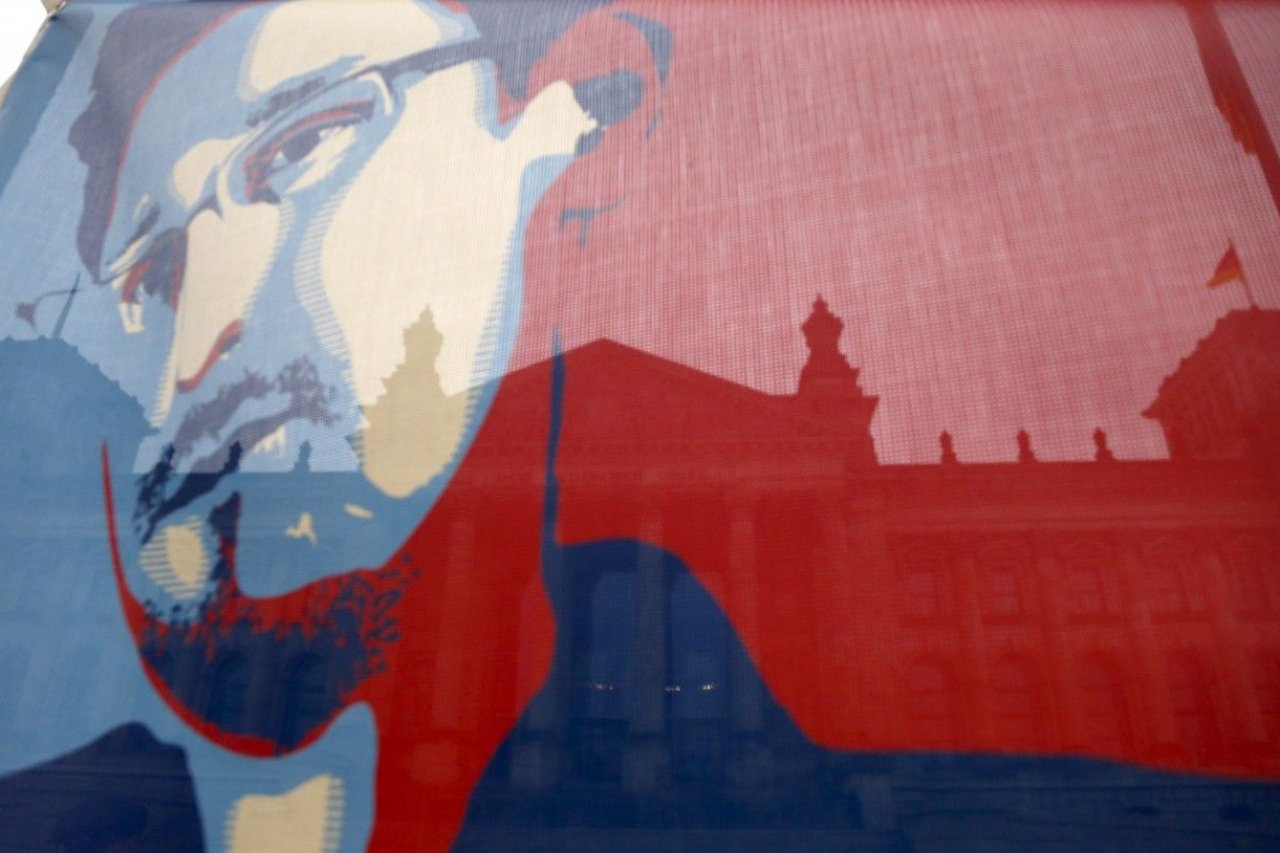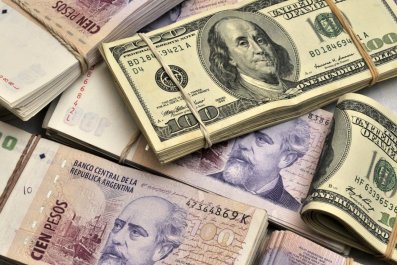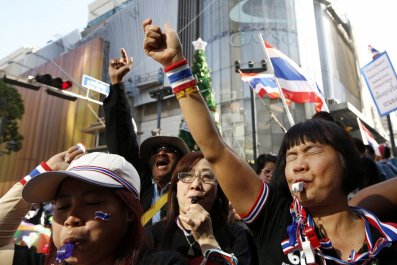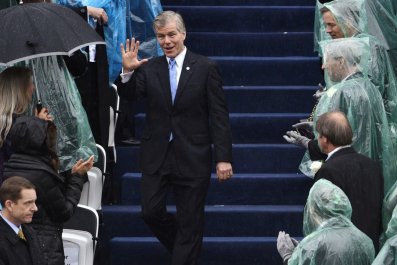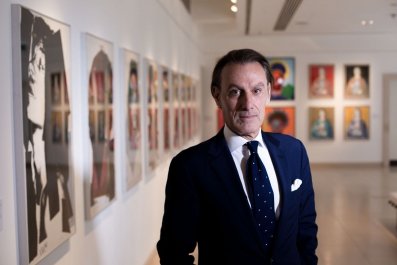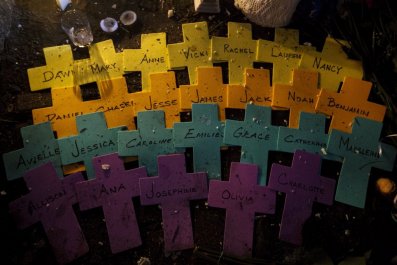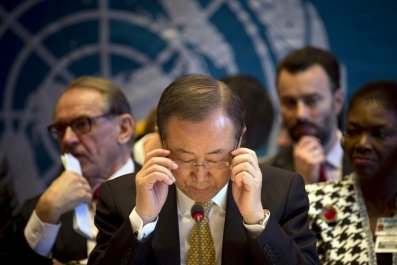Give the hard-liners credit: After one stunning revelation after another about the National Security Agency's Orwellian spying operations, they finally managed to land a punch this week on Edward Snowden, the über-leaking fugitive.
Not that shrill words haven't been flung at the former NSA contractor from the get-go, starting with traitor. And Representative Mike Rogers, R-Mich., chairman of the House intelligence committee, and Michael Hayden, who has headed both the NSA and CIA, joshed openly in an open forum about putting Snowden on a kill list.
None of those smears seemed to stick, though, as Americans and the rest of the world seethed over Snowden's revelations that the NSA had crawled inside the furthest crannies of their personal communications - not to mention the cellphones of Washington's closest allies.
But this week, renewed accusations of "treason," along with sharper insinuations from Rogers that the former NSA contractor had to have had "some help," or was "cultivated by a foreign power to do what he did," as House Homeland Security Committee chairman Mike McCaul, R-Texas, claimed, seemed to have gained wider support. Even Dianne Feinstein, D-Calif., who chairs the Senate Intelligence Committee, added her voice to the overheated rhetoric, telling Meet the Press that Snowden "may well have" had help from the Russians. "I don't know," she added lamely.
No matter that no one cited any evidence to back up these charges. But backstopped by a blistering cover story in the liberal New Republic portraying Snowden, his reporter pal Glenn Greenwald and Wikileaks founder Julian Assange as men who "despise the modern liberal state," the assaults found takers on every major network. Indeed, they emerged like talking points from the war room of a right-wing Washington think tank.
"No - that's a great idea, but no," protested Michelle Van Cleave, a longtime conservative national security operative, when asked if this was an orchestrated attack on Snowden. A former head of the National Counterintelligence Executive agency in the George W. Bush administration, Van Cleave told Newsweek she only helped draw up a public letter, signed by 16 prominent hawks, urging President Obama to resist any changes in the NSA's franchise.
One of the signatories was former Representative Peter Hoekstra, R-Mich., a onetime chairman of the House intelligence committee, who said he agreed with slapping the traitor label on Snowden, even though, he conceded in an interview, "at least at this point, he doesn't appear to have been working with a foreign state, a foreign entity."
Other signers included Hayden; former CIA director James Woolsey, who championed the invasion of Iraq; retired lieutenant general William G. Boykin, a former top Pentagon special operations official who has advocated a Christian crusade against Muslims; former U.N.-bashing U.N. ambassador John Bolton; and former attorney general Michael B. Mukasey, who in 2010 signed a petition for the release of jailed Israeli spy Jonathan Pollard.
The letter was sent out from the hard-right Center for American Security, headed by Frank Gaffney, a birther and former Pentagon official who caused an uproar last year by charging that some prominent fellow conservatives are soft on the Muslim Brotherhood.
The rhetorical escalation on last Sunday's talk shows appear to have riled Snowden. "This 'Russian spy' push is absurd," the ex-pat said in an interview with The New Yorker's Jane Mayer, published Wednesday. "I clearly and unambiguously acted alone, with no assistance from anyone, much less a government," he declared.
The FBI agrees, according to a senior former official quoted by The New York Times. Same for the CIA, though "there are questions," a senior intelligence official told Newsweek, "about somewhere else before he went to Russia." That would include Chinese-controlled Hong Kong, of course, but in 2010 Snowden took advanced computer hacking courses during an assignment in New Delhi, according to Foreign Policy's Shane Harris. And last June, in Hong Kong, he spent two days in the Russian consulate before slipping away to Moscow with the aid of its security agents and Wikileaks helpers, according to Russian media reports. If American eavesdroppers picked up Snowden's conversations anywhere along the way, they're not saying.
But scrapping over whether the whistle-blower was a Russian agent is futile now - and mostly silly, says Oleg Kalugin, an ex-KGB general who spent much of his 32-year career running espionage operations in and against the United States. From what he has seen and heard, Kalugin told Newsweek, Snowden wasn't a spy.
"No, I don't think so," he said, adding that he fits more the picture of a "misfit," somebody "not happy with what they have...their position, their prospects in life... "
But he's in Russian hands now, and eventually the Russians are going to get what they want from him, said Kalugin, who eventually rose to chief of counterintelligence in the KGB's First Directorate. "The object of the debriefing is to make him feel more secure and comfortable." Snowden may well have told his interrogators, "I'm an idealist - I'm not giving you anything I'm not giving the public," Kalugin said with a chuckle. But "they will say, 'We are doing this for idealistic reasons, too!'
"They will find some response to make him comfortable," Kalugin added, but "inevitably," there will be "some pressure."
"If he wants to continue to be treated well, then he has to tell the truth" - everything he knows. "If he starts avoiding them, then they will say, 'Okay, well, good-bye, thank you for what you did, but we are not interested in you anymore. You're out of Russia.'" Their only concern at that point would be to act in a way that wouldn't discourage future Edward Snowdens from coming their way.
"They would provide him with some kind of [way] to leave the country, to Ecuador or someplace" - on a Russian plane, to guarantee his safe arrival, Kalugin said. But facing life in such a backwater, he bet, would compel Snowden to reconsider his refusal to cooperate with Moscow.
"If he goes to Ecuador, what he will have? If he stays friendly with Russia, it's much more promising in terms of his future situation and position. So I think he'll be [smart] enough not to anger the Russians - by providing information" to them.
This piece was filed before Snowden conducted an online live chat late Thursday afternoon.
Jeff Stein writes the SpyTalk column for Newsweek from Washington.



